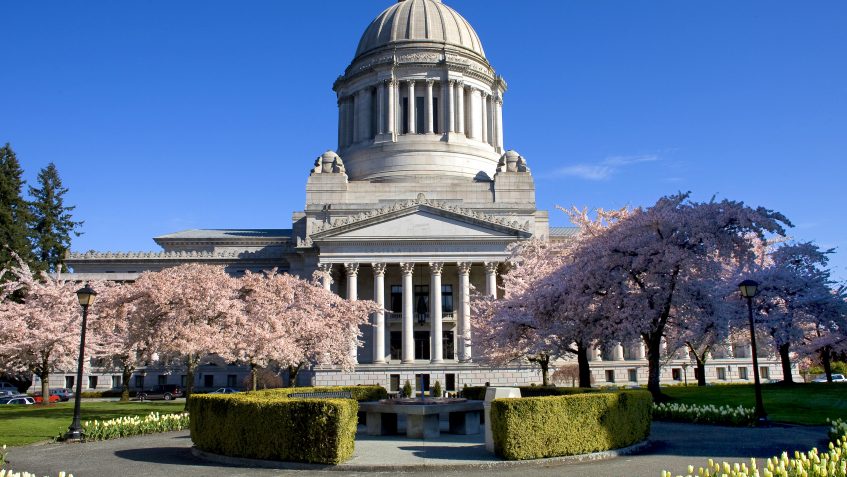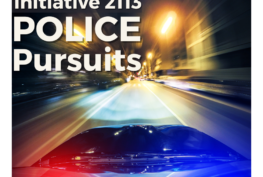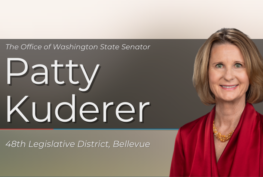
Dear friends and neighbors,
| Sen. Patty Kuderer
Contact: Email: Patty.Kuderer@leg.wa.gov Phone: 360-786-7694 Legislative Hotline: 800-562-6000 |
| Senate Committees:
Health Care (Assistant Ranking) Financial Institutions & Insurance State Government |
As we wrap up the first week of the special session, I would like to give you an update on what is happening in Olympia. The 105-day legislative session ended on Sunday, April 23. Immediately, on Monday, Gov. Inslee called the legislature back into session because we have not yet adopted an operating budget or resolved how we will amply and fairly fund our state’s K-12 education system. The special session may last up to 30 days. I will continue to work on behalf of our district and fight for a budget that funds our kids and those who rely on critical human services.
‘No Thanks’ to voting on taxes without a negotiated budget
A few days before the regular session ended, Senate Republicans held a vote on the capital gains and Business and Occupation taxes without the context of a final budget. Voting on taxes without fixing expenditures is foolish. No business would pay a bill without an invoice. The sad truth is the bills were never going to pass the Republican controlled Senate. So forcing a piecemeal vote on these potential revenue sources outside of the entire budget agreement was nothing more than a political stunt – which is why every Democrat voted ‘no.’ If we spent half as much time actually negotiating the operating budget than we did on the floor that day we would have reached agreement and been done on time. We weren’t sent to Olympia to play games, and I won’t lend my name or reputation to such stunts. Period.
To watch my speech on the Senate floor, click here.
From day one of this session, we knew we would have to make difficult decisions in order to meet our paramount duty and amply fund K-12 basic education in our state. From day one, we knew this would be a difficult budget year given the slim majorities in the House and the Senate. We were prepared, willing and able to expend the effort toward a compromise budget. But you can’t get to compromise with only one party at the table. Our 1.1 million public school children and their teachers are depending upon us to approve a budget that is fair to all and fulfills our constitutional duty to fully and amply fund public education. It’s time to put aside the game-playing and get down to negotiating. And we have an agreed upon starting place: both sides agree that new revenue is needed.
The Senate budget proposes the largest property tax increase in our state’s history. We in the 48th Legislative District will be especially hard hit, given property values are some of the highest in the state. But contrary to what some people believe, not all of us live in mansions on the waterfront. I have heard from many people who are on a fixed income, disabled or working three jobs just to keep their head above water – a large increase in property taxes could force them out of their homes. That is unacceptable to me. I also heard from school district officials, school board members, teachers, and parents that the property tax increase combined with the proposed school levy reform will actually cause our schools to lose money. I am all for raising the educational standards in other school districts, but not at the expense of the excellent education our students receive here in the 48th.
Washington ranks dead last in terms of tax fairness. That means Mississippi is more progressive than we are. Quite simply, our state tax system is broken, placing a majority of the tax burden on our low-wage earners while the upper 1% pay very little. That is because we rely predominantly on regressive sales and property taxes to raise revenue. We must make our system more progressive, and the House budget addresses that inequity. One of the revenue sources in that budget is a limited capital gains tax, or a tax on the profit from the sale of property or investments that will affect the upper 1% of taxpayers. Included in the exemptions are single family homes and retirement accounts, for example.
I am ready to help Washington join 41 other states and vote for this limited capital gains tax, but not in a vacuum as it was presented to us. A limited capital gains tax will help create a more equitable tax structure where the top one percent invests a bit more of their wealth to help our 1.1 million students. Our state needs to adopt a tax structure that brings tax fairness to all Washingtonians.
The Motor Vehicle Excise Tax: the high cost of car tabs
If you have renewed your car license tabs recently, you may have  been surprised by the price. In November, voters approved the Sound Transit 3 expansion to increase light rail service and connect communities in the Puget Sound region. In my opinion, one aspect of the vote was not clear – the real price of car tab renewals. I can understand that people are upset or frustrated by paying higher license tab fees, however, there are ways the legislature can help mitigate costs and provide some relief.
been surprised by the price. In November, voters approved the Sound Transit 3 expansion to increase light rail service and connect communities in the Puget Sound region. In my opinion, one aspect of the vote was not clear – the real price of car tab renewals. I can understand that people are upset or frustrated by paying higher license tab fees, however, there are ways the legislature can help mitigate costs and provide some relief.
House Bill 2201 is a compromise proposal with Sound Transit. It would help drivers recover some of the car tab costs while allowing projects to continue on schedule. The House of Representatives passed this proposal 64-33. Unfortunately, Senate Republicans have opted to stall the bill in favor of their proposal Senate Bill 5893. The Senate bill narrowly passed, 25-24. This plan would jeopardize the voter-approved transportation projects and would subject the state to potential lawsuits from defaulting on bonds, and that would only increase the cost to taxpayers without providing any relief for high car tabs.
I will continue to reach out to my colleagues to find a compromise solution. We need to grant drivers some relief from the high license tab fees and keep transportation projects on schedule. We can do both.
A Washington State Bank?
When the U.S. Congress did not renew the charter of the Second Bank of the United States in 1836, it opened the possibility for states to create their own banks. While several states opened their own banks before 1900, they failed for many different reasons. The Bank of North Dakota, established in 1919, continues to be the only state bank in the United States despite many proposals from other states, including Washington.
As a member of the Senate Financial Institutions & Insurance Committee, I find this proposal very interesting. If our state were to establish a state bank, we would be able to save taxpayer money in the interest and fees that large banks require on infrastructure projects, would help spur economic growth, and create jobs. Our debt service to Wall Street alone is currently $3.2 billion – virtually the entire amount needed now to fully fund basic education.
During the Great Depression and the Great Recession, North Dakota weathered those financial crises much better than most states because of their state bank. It is a valued partner to community banks and last year returned just under 20% on investment. Creation of a state bank of Washington has its merits.
What do you think? I’ve created a very short Google survey to see if you would like to learn more.
Please continue to reach out to me or my office with your questions, comments, and concerns. It is an honor to serve as your state senator.
Best regards,






